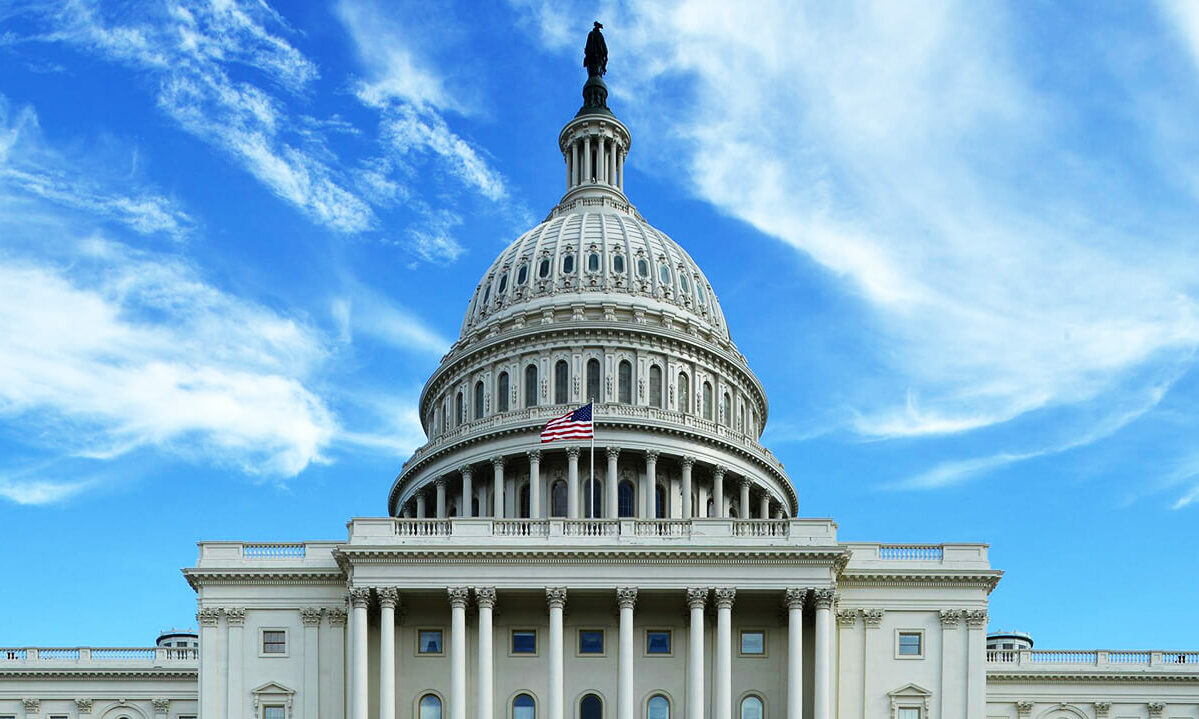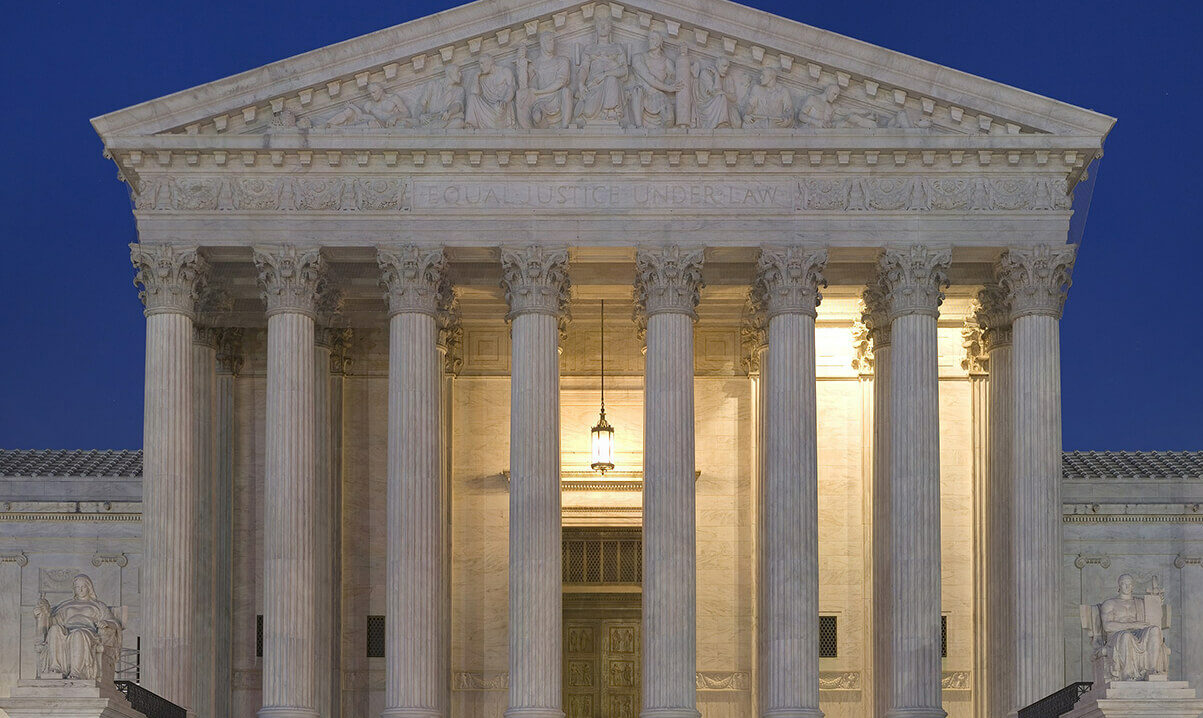Most observers were surprised by the scope of President Bush’s winning margin as well as the reasons for that margin. Few expected Bush to:
- receive more popular votes (60.5 million) than any previous president, and almost 6 million more than Ronald Reagan received in his 1984 landslide victory;
- become the first incumbent since FDR in 1936 to increase his own vote and the size of his majority in both the House and Senate;
- be the first president in 16 years to win more than 50% of the popular vote.
Even those who expected President Bush to win did not expect “moral issues” to rank first among reasons for voting. Who could have imagined that moral issues would outdistance taxes, the economy, Iraq, terrorism, education, or health care?
Numerous indicators affirm that the election results were directly affected by voters’ views on basic Biblical issues. Before examining some of those significant indicators, consider the overall demographics of the election.
General 2004 Voter Demographics
118 million votes were cast in the election, up nearly 12% from the 105 million cast in 2000.
Evangelical Voters: 23% (27.1 million) of all votes cast were by evangelicals. Bush received 78% (21.2 million) of those evangelical votes, representing an amazing 35% of his total of 60.5 million votes. (In 2000, evangelicals cast 15 million votes (15% of the total) and Bush received 71 percent of those votes, representing 21 percent of his 50.5 million total votes.)
Undoubtedly, one of the reasons that moral issues ranked so high in this year’s election was the 80% increase in the number of evangelical voters from the 2000 election. (In 2000, 15 million evangelicals voted; in 2004, nearly 12 million more evangelicals voted – a total of 27.1 million). This surge was one of the factors in reelecting Bush and in increasing Republican gains in both the U. S. House and Senate.
Women Voters: The “gender gap” (first measured in the 1980 election) favors Democrats, but in this election the gap was narrowed to only 7%. Among married women, Bush received 54% of the vote to Kerry’s 45%, but Kerry won 62% of the votes of unmarried women.
Jewish Voters: Jewish voters continue to remain a loyal Democratic constituency, although President Bush expanded his support from 19% in 2000 to 25% in this election.
Catholic Voters: Catholics have been a strong Democratic constituency, but in this election, 52% of the 31 million Catholic voters supported President Bush, resulting in 3.3 million more Catholic voters for Bush than in 2000 (up from his 45% in 2000).
Hispanic Voters: Hispanics, another traditional Democratic block, accounted for 12% of the total vote with 7 million voters (1 million more than in 2000); President Bush won 44% of the Hispanic vote – the largest share for a Republican since recording began in 1972, and up from the 35% he received in 2000.
African American Voters: African Americans continue to be the Democrats’ most faithful constituency in recent elections, but President Bush increased his share of the black vote from 8% in 2000 to 11% in this election.
Urban Voters: Urban areas tend to be the most strongly-Democratic geographic regions of the nation (i.e., the blue areas on the map); yet in this election, urban support for Democrats fell from 71% in 2000 to 60%, prompting Democratic observers to lament that the blue areas on the map are becoming less blue.
Youth Voters: There were 4.6 million more youth voters (ages 18-29) in this election than in 2000. (18.4% of youth voted this year, compared with 16.4% in 2000). Youth supported Kerry by a margin of 54 to 44, but the divide was not nearly as great as predicted. The expected gains from “Rock the Vote,” “Vote for Change,” and the “Vote or Die” efforts of MTV and secular entertainment artists were largely offset by the “Redeem the Vote” efforts of Third Day and nearly three dozen other Christian bands.
General Trends: Bush did poorly among single women, the young, and those who rarely attend church, but he made considerable gains in most other areas. And while half of Kerry’s vote came from Hispanics, African Americans, and single women, Bush made gains in two of those three groups compared to his 2000 election numbers.
A Religious Divide Among Voters
Even though most election analyses examined the vote according to traditional demographics (i.e., by ethnic group, gender, age, etc.), it is probably more accurate to analyze this year’s vote according to the religious practice of voters. In fact, numerous polls leading up to the election indicated that the best predictor of how an individual would vote in this election was frequency of church attendance.
This divide first became apparent in 2000, when those who attended religious services more than once a week supported Bush by a margin of nearly 2-1 and those who never attended religious services supported Gore by the same margin. With an eye to the 2004 election, Washington Post writer Thomas Edsall reported: “Pollsters are finding that one of the best ways to discover whether a voter holds liberal or conservative value stands is to ask: How often do you go to church? Those who go often tend to be Republican, those who go rarely or not at all tend to be Democratic.”
The recent election numbers affirm that the same religious-practice divide of 2000 was again present in 2004, and that it extended across ethnic, gender, and age lines. In this election, 61% of Bush’s vote came from people from all faiths who attend services weekly (this group comprised 41% of the electorate); conversely, Kerry received the support of 62% of Americans who never attend worship (accounting for 14% of the electorate); and among occasional church goers, voters were split almost evenly between Republicans and Democrats. Among Catholics who attended Mass on a weekly basis, 56% voted for Bush, but among Catholics who did not attend Mass regularly, Kerry won. (Protestants reflected the same trend.) Ultimately, Bush received 52% of the Catholic vote, prompting AP writer Richard Ostling to observe, “The majority of Catholics preferred an anti-abortion Methodist incumbent to one of their own – underscoring that today’s religious divide cuts across denominational lines.” (The exception to this trend is among African Americans, who tend to be active church goers but who vote almost exclusively Democratic.)
State Marriage Initiatives
The most obvious indicator that Biblical issues directly affected the election results was visible in the results of the state marriage initiatives. Many liberal Democratic leaders early acknowledged that this issue might be a determining factor in this election – evidenced by their vigorous efforts to keep the marriage issue off state ballots. In state after state, if Democrats failed to kill the measure in the state legislature they turned to courts to have the issue removed from the ballot.
Democratic fears about this issue were confirmed in Missouri three months before the November election. Even though the marriage issue was placed on the primary rather than the general ballot – and despite the fact that pro-marriage advocates were outspent by a margin of 40-1 – the measure passed with 71% support amidst record voter turnout! Matt Franck of the St. Louis Post Dispatch accurately concluded, “values appeared to beat dollars at the ballot box.” (By the way, the report of this massive victory was relegated to page A-16 of the New York Times.)
If the Missouri results disturbed liberal Democrats and marriage opponents, the subsequent efforts in Ohio were even more distressing. After all, citizens there had only nine weeks to gather 323,000 signatures to place the issue on the ballot; yet at the end of those nine weeks, 557,000 signatures had been submitted – and 54,500 new voters registered to vote so they could express their political voice in support of traditional marriage.
When election night arrived, marriage proposals in 11 states had survived all legal attempts to remove the issue from the ballot, and almost 20 million Americans in those states voted on the marriage issue. Not only did the measure pass in all 11 states by an overall margin of 2-1, but support ranged from a low of 57% support in Oregon (still an impressive number) to an almost unimaginable 86% support in Mississippi. (Interestingly, the marriage measures also passed by wide margins in blue states won by Kerry, and 8 of the 11 states included a ban on civil unions as well as on same-sex marriages.)
Immediately after the results were announced, legal challenges were filed in 6 states to overturn the statewide elections on marriage. (Even if the state courts eventually uphold the election results, the votes could still be overturned by federal courts – which is why the Federal Marriage Amendment is being so vigorously pursued in Congress.) Support for marriage was also a defining issue in several U. S. Senate races – including that of Senate Minority Leader Tom Daschle, who was defeated by John Thune (the first time in 52 years that a Senate party leader has lost a re-election bid).
(The interesting counter-trend to the national pro-marriage movement was seen in Massachusetts, where all incumbent state legislators who had advocated same-sex marriage or unions were reelected.)
Clearly, the marriage issue was a powerful influence in state and federal elections; was it also influential in the presidential election? Undoubtedly. Although the mainstream media failed to report on the more than 40 major speeches that President Bush delivered on the marriage issue, voters still learned of those speeches and spoke loudly on Election Day. As Tony Perkins, head of the Family Research Council, noted: “At weddings they used to say, ‘Speak now or forever hold your peace.’ This shows that the people, when given the opportunity, speak very clearly.”
The Pro-Life Vote
In this election, 13% of all voters said they voted for pro-abortion candidates, but 25% of voters said they voted for pro-life candidates, obviously resulting in a distinct advantage for pro-life candidates.
Evidences of pro-life victories in this election are readily available. For example, the Susan B. Anthony List (an organization that endorses only pro-life candidates) placed almost $5 million into pro-life races, and Emily’s List (an organization that only endorses pro-abortion candidates) placed almost $45 million into pro-abortion races. Yet despite being outspent by more than 8-1, 80% of the candidates endorsed by Susan B. Anthony won, compared to only 39% of the candidates endorsed by Emily’s List. In fact, Susan B. Anthony candidates defeated six candidates backed by Emily’s List; 15 backed by Planned Parenthood; five by NARAL (the National Abortion Rights Action League); 11 by NOW’s PAC; and 11 by the pro-abortion Women’s Candidate Fund. (By the way, the 2002 and 2004 elections have added 19 new members to the U. S. Senate: 15 Republicans and four Democrats; all 15 Republicans are pro-life, but none of the Democrats are. The U. S. Senate has become significantly more pro-life over the last two elections.)
The pro-life as well as the marriage issue helped President Bush make significant gains in the Hispanic community. Bush ran ads on abortion and homosexual marriage in Spanish-language media and received the largest numbers of Hispanic votes ever received by a Republican president. One Hispanic voter seemed to sum up the feeling of many when he explained, “I voted for Bush based on his moral stance. Bush is pro-life, I’m pro-life. He believes marriage should be between a man and a woman, and so do I.”
(One amazing and almost inexplicable aspect of this election was the fact that 26% of those who oppose all abortions voted for Kerry – who opposes no abortions.)
The African American Vote
While the percentage increase of African Americans voting for President Bush appeared relatively small, the gain was actually much greater than it appears. While Bush received 8% support of the 10.8 million black voters in 2000 (that is, 864,000 votes), in this election he received the support of 11% of 13.2 million black voters (that is, 1.45 million votes – nearly a 70% increase in the actual number of individual African Americans voting for President Bush).
As suggested by columnist Gregory Kane of the Baltimore Sun, the cause for much of the African American increase in support for President Bush was his pro-life and pro-traditional marriage position. Just days after the election, Kane explained:
The first inkling I had that Sen. John Kerry would lose Tuesday’s election came exactly a week before, when I participated in a telephone conference call that the Massachusetts senator had with about 350 black clergy. After former President Bill Clinton introduced him, Kerry told the group that the issue of gay marriage was a red herring. “I ask you not to be diverted from the real issue in this case,” as if blowing off the moral issue that would eventually cost him the election weren’t enough, we have to look at what else was wrong with the picture: when you’re telling clergy folks that things many Christians regard as sins don’t matter, you might not want an admitted philanderer to be the guy introducing you. Earlier in the campaign, Kerry shared a stage with the Rev. Jesse Jackson, another fella not yet bitten by the monogamy bug, who [also] said moral issues in campaign 2004 were a diversion.
While overall African American support for Bush was at 11%, it was much higher in many battleground states, such as Ohio and Pennsylvania where African American support for Bush reached 16%.
The New Faces Elected
The voters’ support for life, faith, and traditional family produced an outstanding body of freshmen House and Senate members. Consider first the U. S. Senate results: nine new freshman Senators, seven of whom are pro-life (all the Republicans).
Following the election, veteran Senator Jon Kyl (R-AZ) observed, “In terms of the Republicans, with the exception of Don Nickles, every one of them is more conservative than the person they replaced.” The voting records as recorded by the American Conservative Union (ACU) confirm the truth of Kyl’s statement:
- South Dakota: John Thune (former House Member; ACU: 92%) will replace Tom Daschle (ACU: 22%).
- South Carolina: Jim DeMint (current House Member; ACU: 100%) will replace Fritz Hollings (ACU: 15%).
- North Carolina: Richard Burr (current House Member; ACU: 96%) will replace John Edwards (ACU: 30%).
- Louisiana: David Vitter (current House Member; ACU: 100%) will replace John Breaux (ACU: 42%).
- Florida: Mel Martinez (a pro-life, pro-traditional marriage Secretary of HUD under President Bush) will replace Bob Graham (ACU: 20%).
- Georgia: Johnny Isakson (current House Member; ACU: 96%) will replace Zell Miller (ACU: 47%)
- Oklahoma: Tom Coburn (former House member; ACU: 97%) will replace retiring Don Nickles (ACU rating: 100%). (This is the seat in which Kyl correctly acknowledged that there would be little change.)
The new Republican Senators are not just conservative votes but rather are committed leaders. As freshman Tom Coburn expressed it:
I believe we have a deficit of moral courage in the United States Congress. We have many learned individuals who know what is right but have not the courage to stand against the moral corruption that is now attempting to undermine our republic. I believe we have lost sight of the moorings of the Constitution in that it was founded upon the principles of a Creator and that we have inalienable rights given by that Creator. We need leaders who are unashamed of their faith and understand its importance in the maintenance of a free society.
On the Democratic side, the two new freshmen Senators – Barack Obama (IL) and Ken Salazar (CO) – are both pro-abortion and both oppose marriage protection.
In the House, there are 39 new members: 23 freshman Republicans, 14 freshmen Democrats, and two undecided (two House races in Louisiana will have runoffs in December). Like the Senate, the Democratic House Members tend to be pro-abortion and the Republicans pro-life, including new pro-life and pro-family advocates Geoff Davis (KY), Bobby Jindal (LA), Patrick McHenry (NC), Virginia Foxx (NC), Jeff Fortenberry (NE), Ted Poe (TX), Kenny Marchant (TX), Louie Gohmert (TX), Michael McCaul (TX), Cathy McMorris (WA), Mike Sodrel (IN), Mike Fitzpatrick (PA), Bob Inglis (SC), Dave Reichert (WA), and many others. (Additionally, the House’s strongest pro-choice Republican was replaced by a much more conservative Member.)
Clearly, candidates embracing Biblical moral values did very well in this election as voters showed their preference for such leaders.
The Specter Response
The day following the election, when even the secular media was acknowledging a moral mandate from the election, pro-abortion Republican Senator Arlen Specterv(likely the next chairman of the Senate Judiciary Committee) appeared to issue a thinly veiled warning to the President to not send conservative pro-life judicial nominees before his committee.
Senate offices were immediately inundated with thousands of calls, asking Senators to deny Specter the committee chairmanship. That unorchestrated, spontaneous, and rapid response was in itself a major victory, demonstrating that citizens intend to remain engaged in the culture war on the policy side as well as the election side. This unexpected response from citizens has already had a profound effect inside the Senate.
As a result, Sen. Specter is rapidly backtracking. It is likely that he will publicly pledge not to oppose any of the President’s nominees, and as a result his fellow Senators may permit him to become chairman. Such a result ensures that the message delivered so clearly by citizens in the election will be paid attention to after the election.
(Interestingly, the new Senate Minority Leader for the Democrats is Sen. Harry Reid of Nevada. Reid’s pro-life record is not particularly strong, but he is one of the strongest pro-life Democratic Senators. Ironically, over the last three sessions of Congress, Reid has actually had a better pro-life voting record than Specter!)
Three Post Election Reactions
There have been three distinct visible reactions (not responses) to the election results from various groups of Democratic leaders and activists. The first reaction is reminiscent of the reaction of Democrats against Republicans 144 years ago.
The election of 1860 was characterized by a cultural divide over slavery. The upstart Republicans (having been founded only six years earlier, in 1854) had issued platforms setting forth bold declarations of equality and civil rights for all African-Americans and, condemning slavery, the Fugitive Slave Law, and the Dred Scott decision. The Democrat platforms, however, strongly defended slavery and supported both the Fugitive Slave Law and the Dred Scott decision.
When Americans in that election handed the presidency, the House, and the Senate to Republicans, it was obvious to Democrats what was about to happen: the anti-slavery and pro-civil rights positions of the Republicans were about to become reality. What was the response? Southern Democrats seceded – they left Congress and took their states with them, forming a new nation that described itself as the “slave-holding” Confederate States of America – a nation led by a Democrat U. S. Senator as its president and a Democrat U. S. Representative as its vice-president. (By the way, the fear of Democrats in that election came true: Republicans not only passed a constitutional amendment abolishing slavery while still fighting the Civil War but they also passed two dozen civil rights laws in only a decade, one of which banned all segregation; but the Supreme Court – being as out of touch with the wishes of that generation as it is with today’s – struck down that desegregation law.)
Now, a century-and-a-half later in 2004, with it being obvious to Democrats that Republicans intend to protect marriage, innocent human life, and reign in an activist judiciary, Democratic leaders such as Lawrence O’Donnell, Bob Beckel, and Geraldine Ferraro (as well as many rank-and-file Democrats) are once again making noise about secession. The proposed map they are circulating on the internet demonstrates their understanding of the cultural divide in this election: they propose that the 19 blue states won by Kerry join with Canada to form the “United States of Canada,” and that the remaining 31 red states be named “Jesusland.”
However, not all Democrats are seeking to secede; some are simply seeking psychotherapy. In fact, so many have sought help that mental health professionals have developed a new category for the disorder. According to Rob Gordon of the American Health Association, “We’re calling it ‘post-election selection trauma’.” What are the symptoms of this disorder? “They include feelings of extreme anger, despair, hopelessness, powerlessness, a failure to function behaviorally, a sense of disillusionment, of not wanting to vote anymore.” Gordon warns: “There are definitely people depressed by John Kerry’s loss, and this can easily lead to suicides like the one we saw up in New York this weekend.”
The third apparent post-election reaction is a deliberate attempt to reshape long-held definitions of established words, or doing what the dictionary describes as “new-speak” (the “deliberately ambiguous and contradictory language used to mislead and manipulate the public,” based on the term invented in the famous novel 1984). In other words, many liberals, understanding that they lost the election largely because of traditional moral values, are attempting to redefine the scope and universally understood meaning of those words. For example, the Rev. Robert Edgar, general secretary of the National Council of Churches, laments: “The religious right has successfully gotten out there shaping personal piety issues – civil unions, abortion – as almost the total content of ‘moral values.’ And yet . . . God doesn’t want 45 million Americans without health care.”
Supporters of same-sex marriage are now asserting that it is “moral” to extend partnership rights to two men or two women who have “committed” themselves to each other, and pro-abortion advocates are now claiming that it is “moral” for a poor mother to have an abortion rather than bear a child she might not want. Since the election, the Left has begun chanting about “morals” and “values,” but giving those words their own new meanings.
Another frequently mentioned “moral value” involves taking care of the poor. As the Rev. Stephen Bouman explains, “One thing Jesus was absolutely clear about was helping the poor.” While it is true that the Bible does have much to say about helping the poor, it is also true that the Bible clearly prioritizes certain issues. Consider the fact that God took over 600 laws and reduced them into His “Top Ten” commandments. The protection of innocent life does make God’s Top Ten (#6), and the protection of the sanctity of marriage also makes God’s Top Ten (#7); however, taking care of the poor does not make God’s Top Ten, and to elevate that issue above what God has elevated is to usurp His authority and that of His Word.
Additionally, when George W. Bush, then Texas Governor first implemented faith-based programs in Texas, CBS News traveled to Fredericksburg, Texas, and reported that the same amount of welfare money that previously had taken care of 4 recipients in the government system was now taking care of hundreds of recipients in the faith-based welfare system. Therefore, it is apparent that the ability to better help the poor is dramatically increased by the implementation of faith-based
programs – something that most Democrats vehemently oppose and most Republicans strongly support.
Statistical indicators in the election – as well as the reactions and rhetoric of those who lost – clearly confirm that “moral issues” were a definitive and major influence in the outcome of this election. So was there a moral mandate delivered by voters on election night 2004? Many indicators would suggest that the answer may be, “Yes.”
* This article concerns a historical issue and may not have updated information.









